PhD Careers in Social Policy: Alumni Profiles
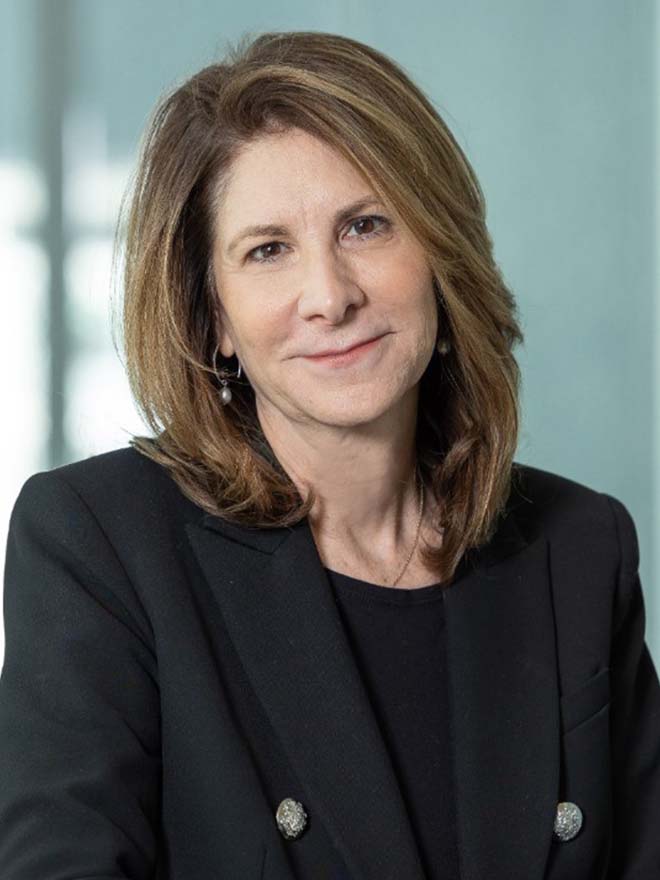
Linda Mills, PhD'94
President, New York University (NYU)
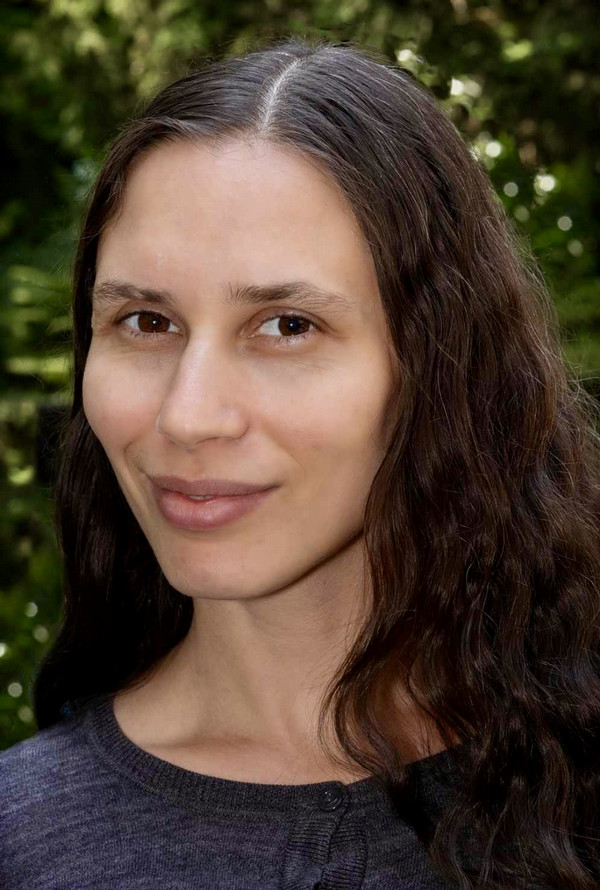
Anna Clements, PhD'24
Lecturer at Georgia Military College
“One of the things I love most about Heller is the strong sense of community and collaboration...From the beginning, we’re empowered to share our research interests and expertise. There’s a strong culture of respect where we can draw from one another’s backgrounds instead of feeling like we’re competing for the same opportunities.”
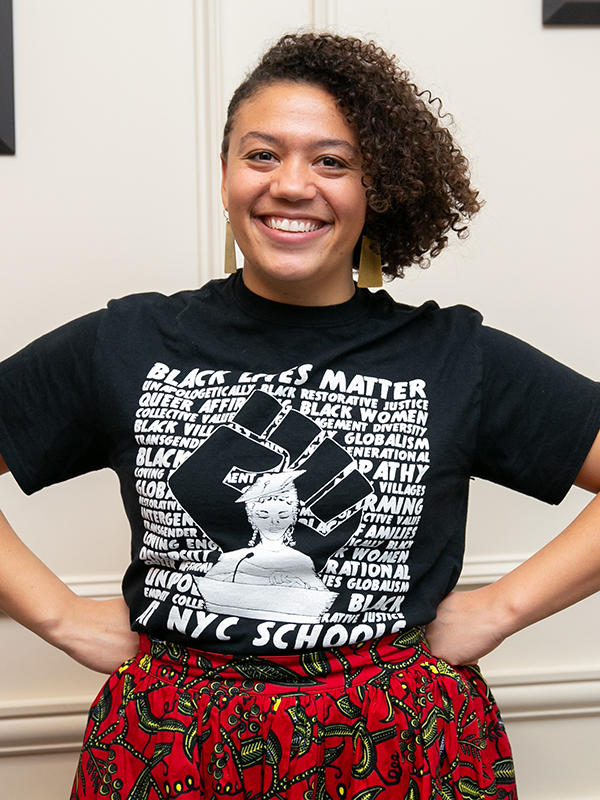
Megan Madison, PhD'24
Co-author of "First Conversations," an award-winning series of books for young children
“My dissertation committee really pushed and supported me to dive deeply into theory... My dissertation was fairly unconventional by a lot of standards, and I could not have done it without the fantastic committee that I had—I feel deeply honored to have worked with each and every one of them.”
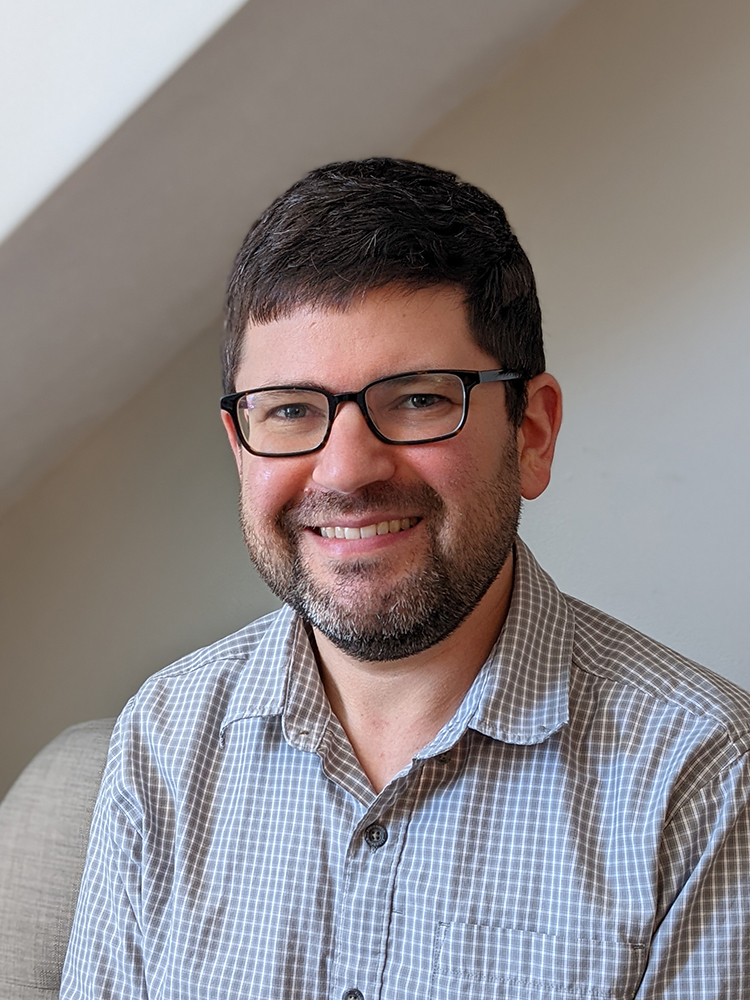
Matthew Brookner, MPP/MA’13, PhD’21
Associate Research Scientist at Brandeis University’s Cohen Center for Modern Jewish Studies
“Heller is a great place to find your intellectual passion,” says Brookner. “Heller gave me the space to determine what I wanted to research, and how, and more importantly the support structures to figure it out on my own. Not all doctoral programs provide such a space for exploration, and for me, it was a great fit.”
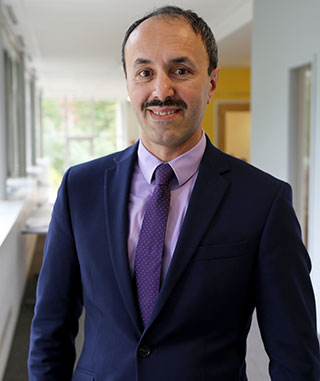
Ilhom Akobirshoev, PhD’15
Scientist, Lurie Institute for Disability Policy, The Heller School
Ilhom Akobirshoev, PhD’15, is dedicated to revealing the health disparities faced by the most vulnerable people in the world. In spring 2020, Akobirshoev received Heller’s Early Career Investigator Award, honoring his work on pregnancy and birth outcomes for women with disabilities, and his collaborations with Heller researchers in global and behavioral health.
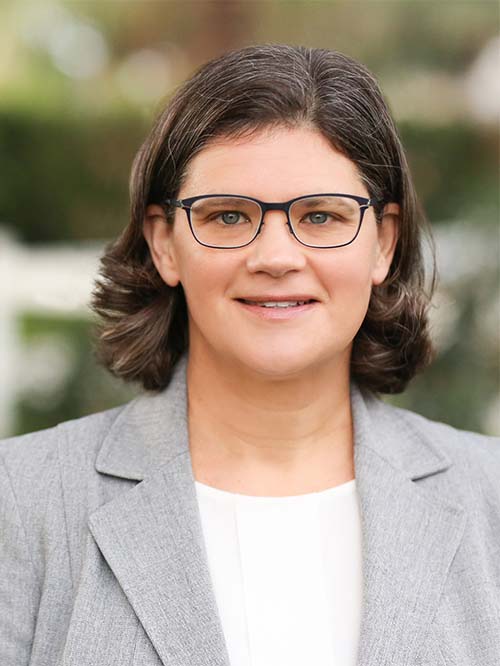
Anne Douglass, PhD’09
Associate Professor and Executive Director, the Institute for Early Education Leadership and Innovation at the University of Massachusetts Boston
“I went into Heller to pursue what I was most passionate about and learned things I knew nothing about before, like organizational theory with Jody Hoffer Gittell. The immersion in organizational science research and theories of leadership have proved to be most influential in shaping my ideas and bringing them to fruition.”
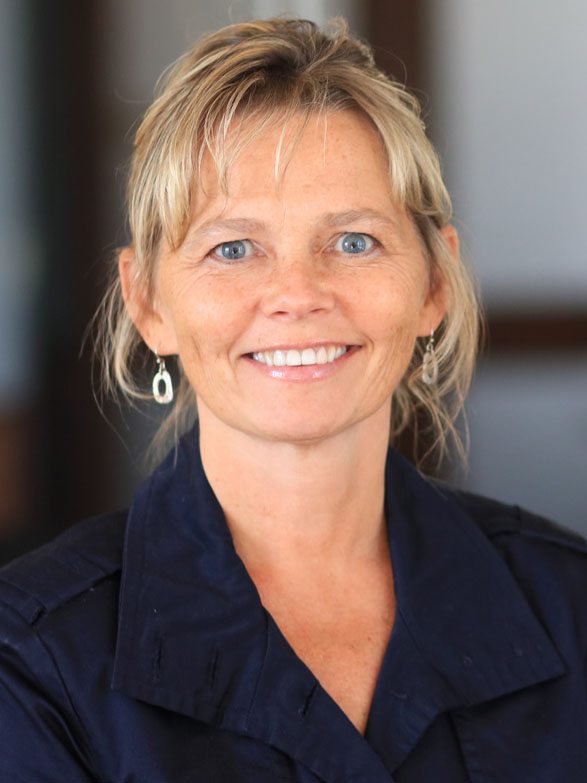
Brenda Bond-Fortier, PhD’06
Professor, Suffolk University’s Institute for Public Service
“When you look at the research around reforming policing and criminal justice, it is usually focused on what works to reduce crime. What I see in the current debate around reform is it really is laser-focused on the institution and how it’s constructed in a way that creates conflict and tension between communities of color and police agencies,” says Bond-Fortier, who consults for police departments across the country, working to redefine public safety.
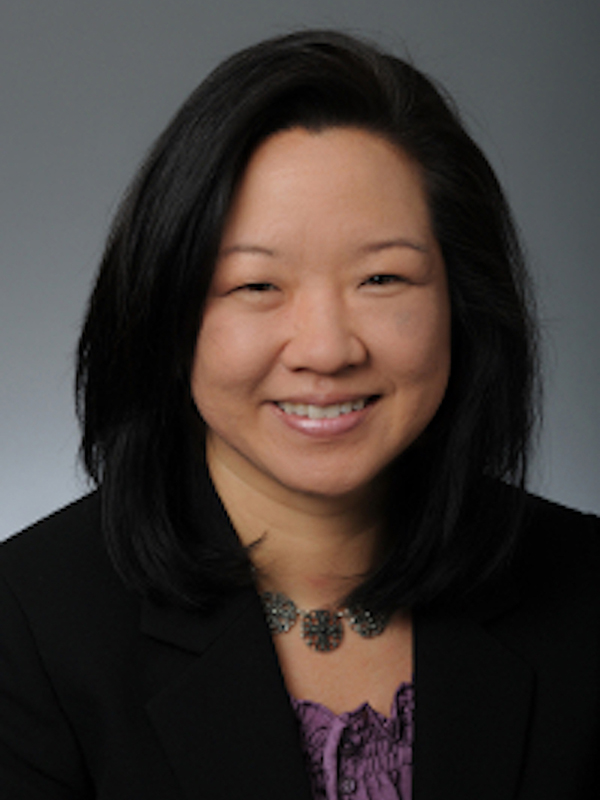
Emily Ihara, PhD'05
Professor and Chair, Department of Social Work, College of Public Health at George Mason University
“When you meet a fellow Heller alum, you can feel an instant connection. There’s an understanding that we are coming at things from a similar angle. That shared experience opens up a lot of doors.”
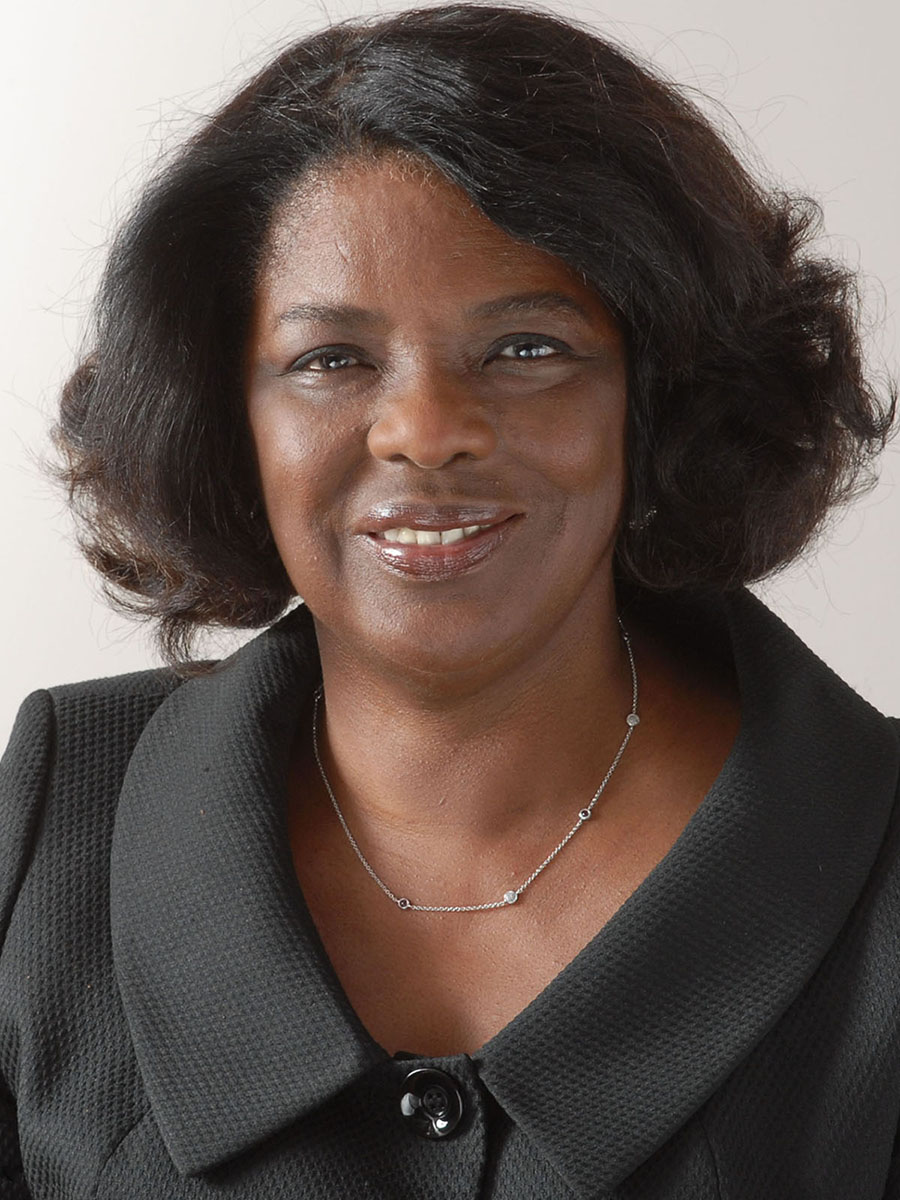
La Verne Reid, PhD’99
Professor, College of Behavioral and Social Sciences at North Carolina Central University
In addition to teaching and mentoring students, Reid partners with North Carolina state health agencies to design training programs to increase the cultural competency of healthcare providers working with HIV patients.
“I talk about my experience at the Heller School a lot with my students because we are very interested in health inequities. Heller exposed me to the language that policymakers use, and it's totally different from that of health inequality. I learned to speak that language and examine those differences. After receiving my PhD from Heller I worked with the North Carolina legislature, helping them understand how using data could inform their decision-making. Heller gave me access to that world. I learned the way policy is decided upon, and I understand that now. Heller opens doors.”
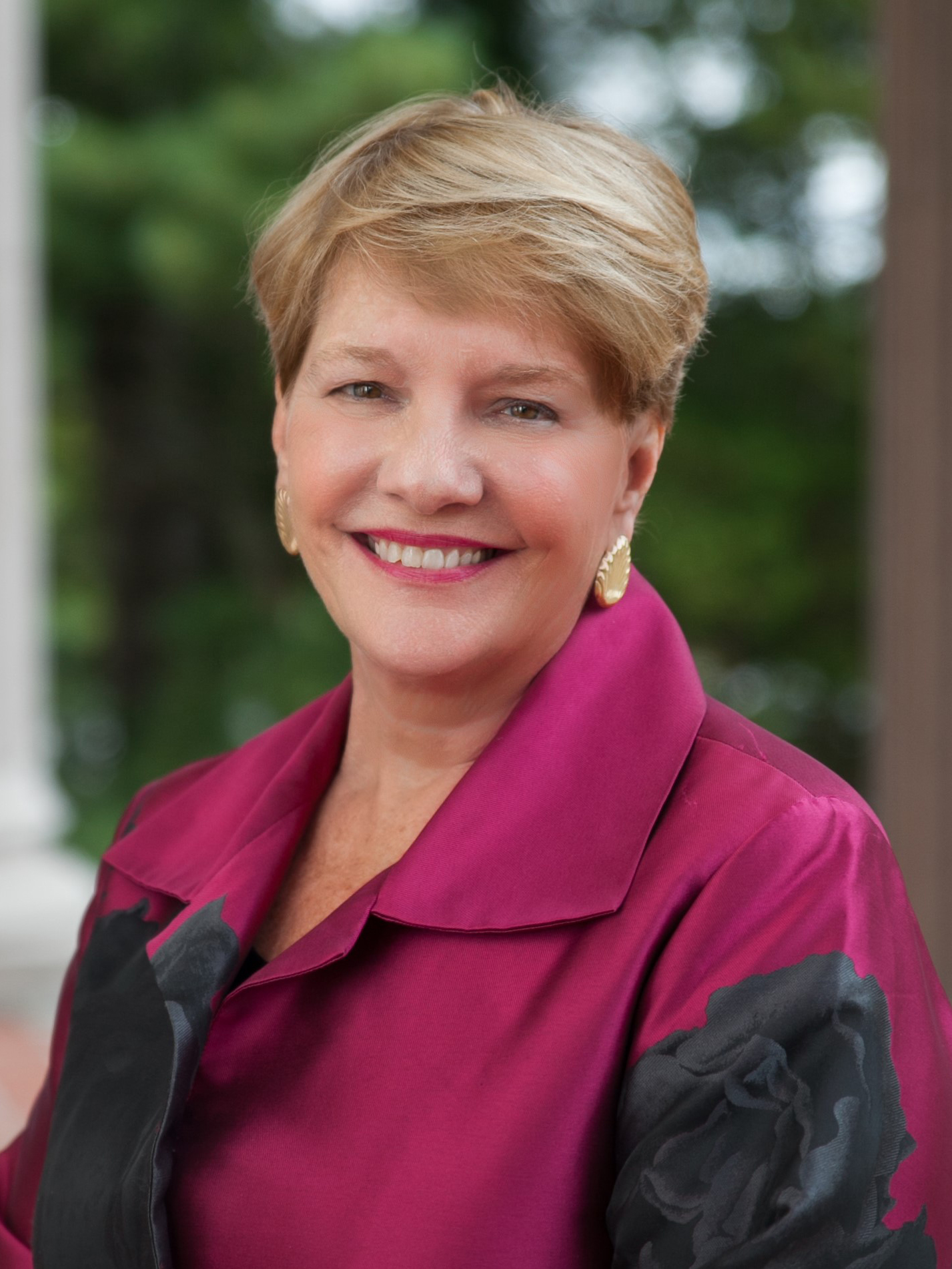
Antoinette Hays, PhD’90
President, Regis College
Whether it’s strengthening Regis College’s bottom line and academic excellence during an era of upheaval in higher education, earning a doctorate while working and raising children, or innovating nursing education in Haiti, Hays approaches her life’s work by focusing on forward movement and making sure she gets a seat at the table.
The American Nurses Association (ANA) recognized Hays’ contributions to nursing with a Living Legends in Massachusetts Nursing Award in spring 2019.
“My education at Heller, including a deeper understanding of economic, political and sociological theories, coupled with skills in statistics and research methods, has given me a distinct advantage.”
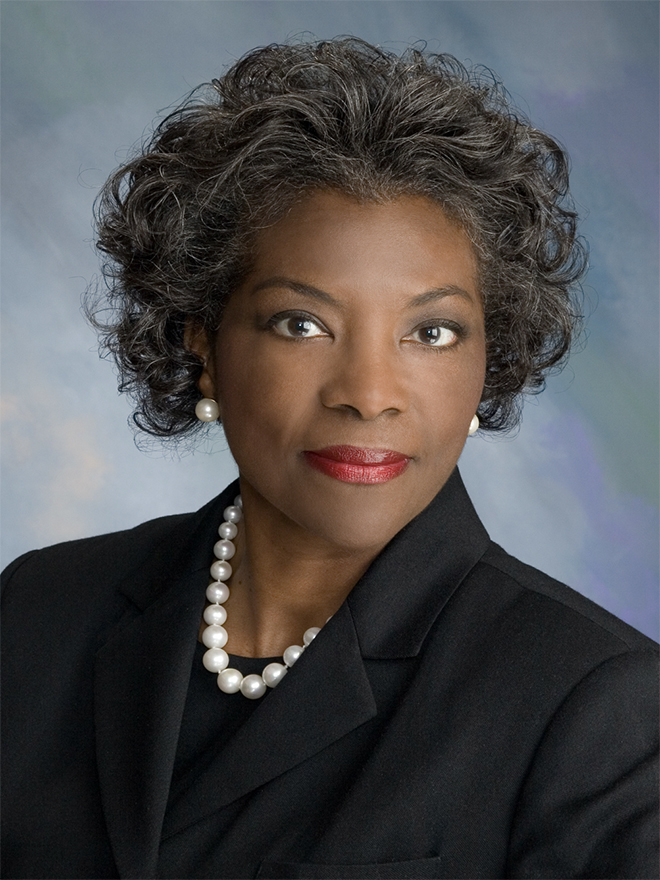
Barbara Nobles Crawford, PhD’84
Director of Executive and Leadership Coaching for MBA Working Professional Programs at the University of North Carolina Kenan-Flagler Business School
Nobles Crawford serves as a member of the Heller School Board of Advisors and in March 2021, moderated a panel with Dr. Eddie Moore, creator of the 21-Day Racial Equity Habit Building Challenge©. “The Heller School was a trailblazer in presenting this opportunity to the community in January. Just as I feel proud to have been part of movements to improve policies, best practices, and laws that ameliorate injustices for underrepresented, and brown and Black people, I’m proud to be a part of helping teach equity, diversity, and inclusion to my fellow Brandeisians.”
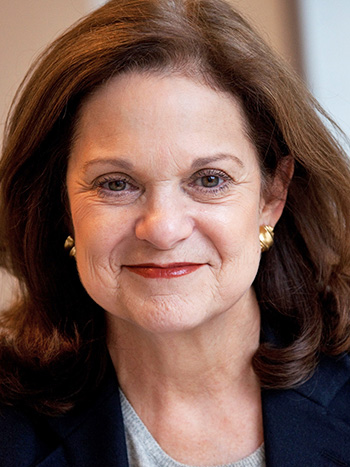
Bryna Sanger, PhD’76
University Professor of Policy and Management, The New School
As a Board of Advisors member, Sanger regularly returns to Heller to offer her expertise and insights to students, faculty and the administration.
“I’m grateful to have had a Heller education. My career prospered as a consequence, and my Heller friends are still some of my best friends. That’s why I give back and serve on the board. I want to help the next generation. Especially in these challenging times, a Heller education is needed more than ever.”
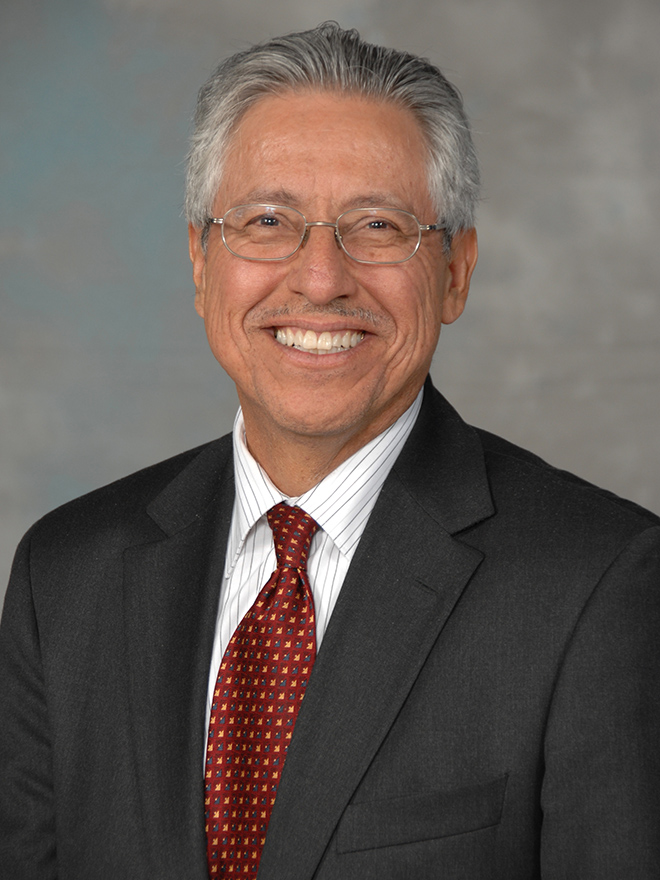
Fernando Torres-Gil, MSW’72, PhD’76
Director, Center for Policy Research on Aging; Professor of Social Welfare and Public Policy, UCLA Luskin School of Public Affairs
Fernando Torres-Gil, MSW’72, PhD’76, is one of 15 alumni to receive a 2020 Florence G. Heller Alumni Award. He is the director of the Center for Policy Research on Aging at the University of California, Los Angeles, where he also serves as professor of social welfare and public policy at the Luskin School of Public Affairs. An internationally renowned expert on the politics of aging, Torres-Gil’s research also encompasses health and long-term care, disability and entitlement reform. He has served presidents from Jimmy Carter to Barack Obama, in addition to appointments to various state and city advisory committees, and he is currently advising President-elect Biden.
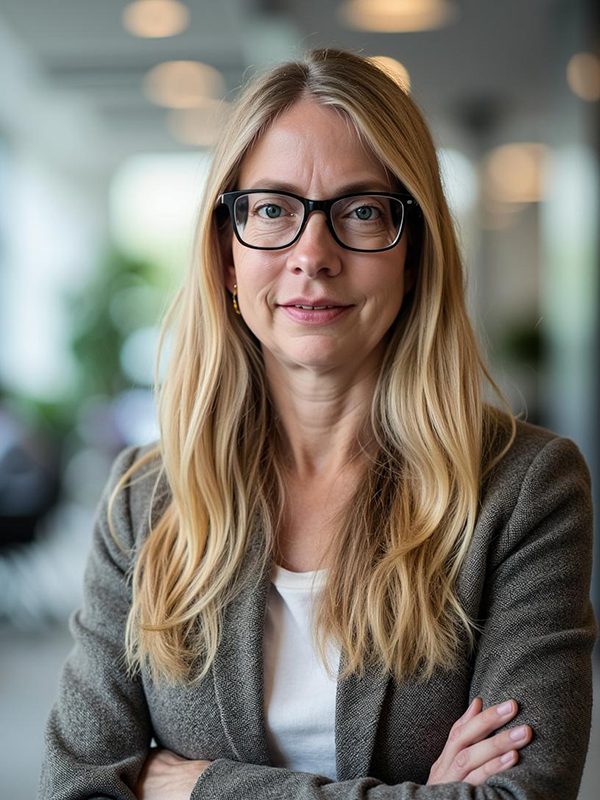
Rebecca Nuernberger, PhD'24
Family Nurse Practitioner, Lynn (MA) Community Health Center
“[The Heller PhD] really was a multidisciplinary program. We all came from many different backgrounds, and were interested in different areas of policy. I learned as much from my peers’ experiences as I learned from the courses and my relationships with faculty.”
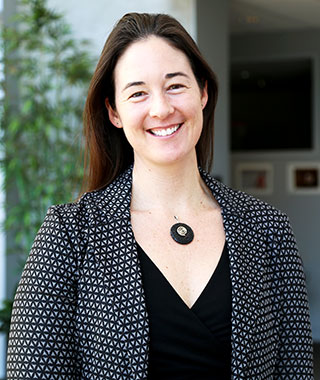
Brooke Evans, PhD’19
Director for Behavioral Health and Opioid Stewardship, Washington State Hospital Association
As the director for behavioral health and opioid stewardship on the safety and quality team, Evans provides member hospitals across Washington state with the big data sets and training they need to improve the quality of health care for patients. It's an opportunity to combine her years of experience in clinical social work with the policy, data analysis and implementation skills she gained in Heller’s PhD program.
“The Heller PhD experience is truly unique. There were so many different paths I could have taken, but I’m so grateful for my experience at Heller, and excited to see where my degree takes me.”
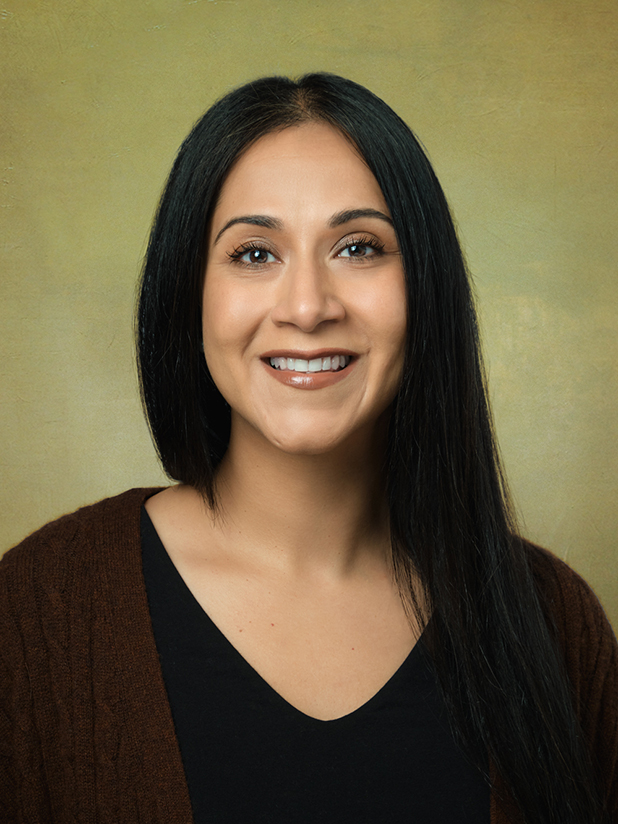
Ramandeep Kaur, PhD’15
Health Services Researcher at RTI International
Kaur found that her graduate coursework, combined with a research assistantship, helped her develop the knowledge and skills needed to one day be at the heart of efforts to understand the effects of the COVID-19 pandemic. She also joined a research team her first year at Heller and says working under a team of Heller researchers was “extremely enriching, [playing] a key role in defining my doctoral dissertation and my current work.”
“From my very first day at Heller, I felt I belonged there,” she says. “Support from faculty and peers is what created a feeling of community for me at Heller, something I truly valued and have continued to remember.”
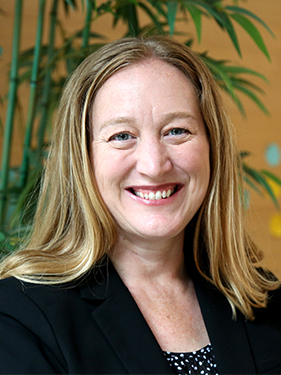
Jessica Santos, PhD’15
Director, Leah Zallman Center for Immigrant Health Research
“I’ve always been interested in the idea that when immigrants and newcomers arrive, they invest in their new community. How do we build thriving communities that are inclusive and equitable for long-standing residents as well as newcomers?”
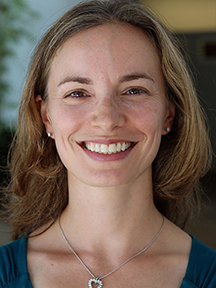
Marianne McPherson, PhD’09
Director of Implementation, 100 Million Healthier Lives
McPherson is a key leader of a small team charged with keeping the massive movement on track. She does a bit of everything, from coordinating resources for members, to developing the website and a measurement platform and providing leadership to the wide network of participants. “I really enjoy helping to connect the dots across a variety of issues. I love being able to support the diverse collection of members who together are transforming health and wellbeing with a core focus on equity.”
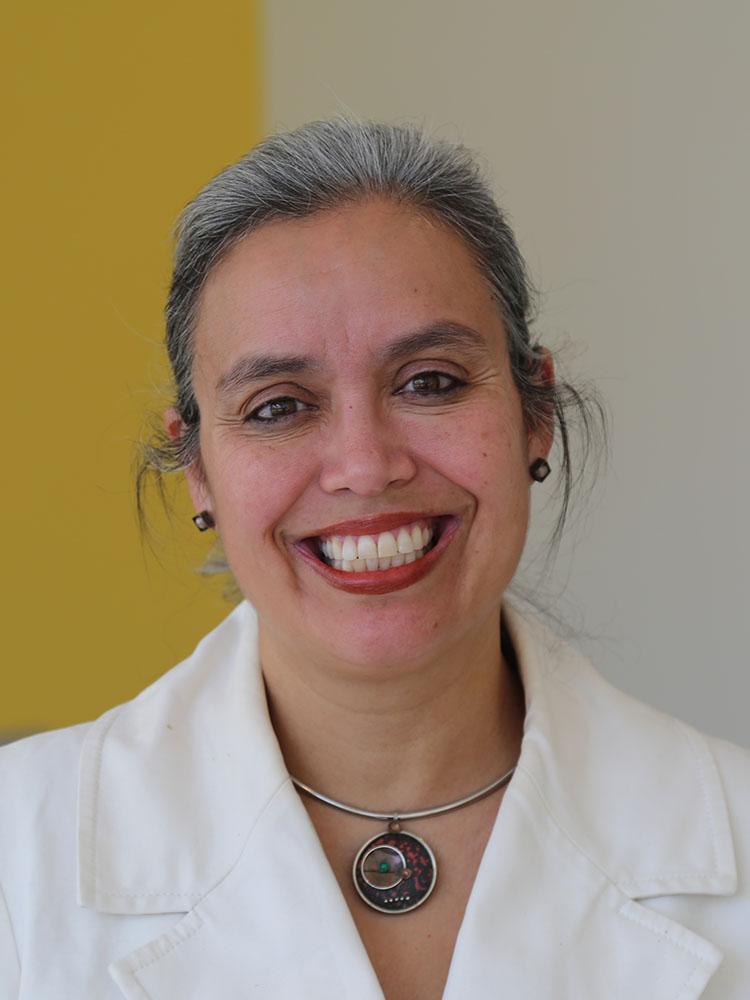
Alexandra Piñeros-Shields, PhD’07
Executive Director, Essex County Community Organization; Associate Professor of the Practice, the Heller School
ECCO is an interfaith, interracial and interclass network of 40 faith congregations whose mission is racial and economic justice.
“I am who I am today because of the education I received at the Heller School, there’s no doubt about that. I learned to think critically [at Heller], and in particular, I learned the rigor of interrogating a problem and understanding it at various levels of analysis.”
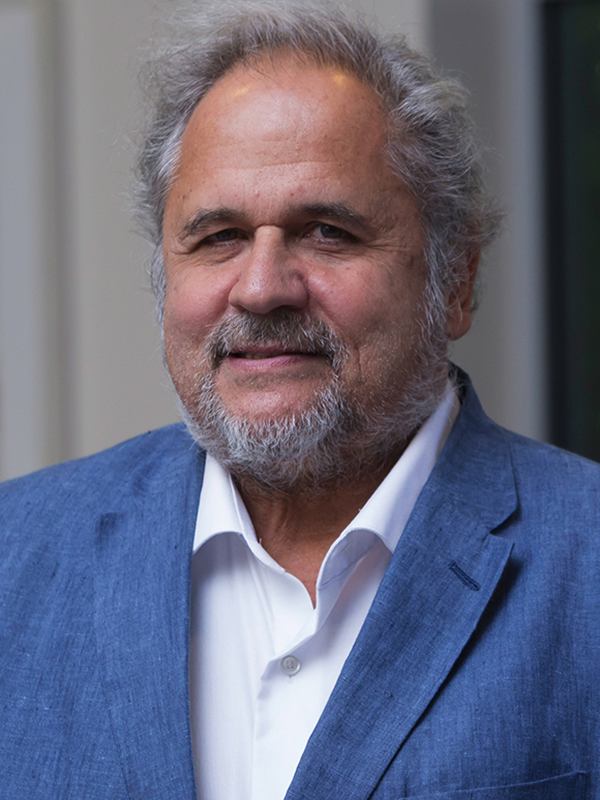
Joseph Wronka, PhD’92
Representative to the United Nations, People’s Decade for Human Rights Education
As a representative to the United Nations in Geneva for the International Association of Schools of Social Work for roughly a decade and professor of social work at Springfield College for 25 years, Wronka has spent his career advocating for underrepresented populations and researching and advancing human rights policy around the world. Wronka was initially inspired by his father to develop a humanistic way of thinking and acting in his life and was encouraged by Heller Professor David Gil to undertake the task of reading and comparing federal and state constitutions to the U.N. Universal Declaration of Human Rights which then motivated his dissertation topic.
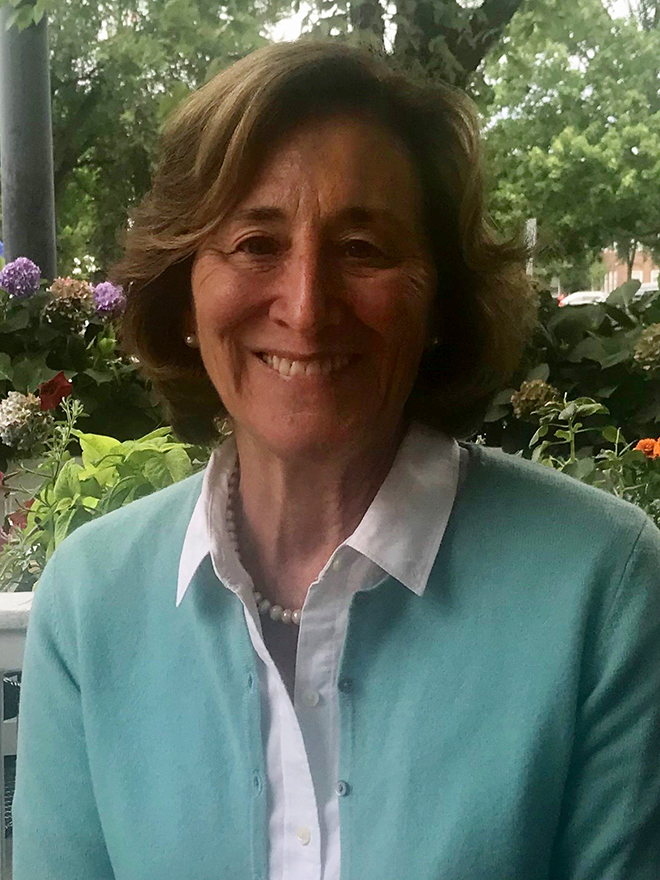
Constance Fairweather Kane, PhD’85
Founder, Empowered to Educate
Heller holds a special place for Kane, not just for the technical and academic education she received, but because it’s a community of people who are committed to social change and to supporting one another. “You have the strength, leadership, and skills to do whatever you want to do, but don’t try to go it alone. Don’t forget your friends and your network from Heller. And don’t be afraid to ask for help; nine out of ten people will say ‘yes.’ And after they have helped, don’t forget to say ‘thank you!’”
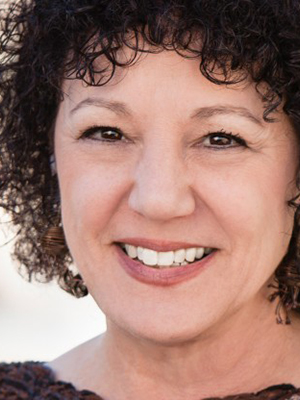
Freada Kapor Klein, PhD’84
Partner, Kapor Capital; Co-founder, Project Include
For decades, venture capitalist Kapor Klein has worked to reduce bias, harassment and discrimination in work environments through both for-profit and nonprofit organizations. “I wouldn’t be doing this work for this many decades if I weren’t fundamentally an optimist. I have been and remain an advocate for social and racial justice, and therefore I am an optimist.”
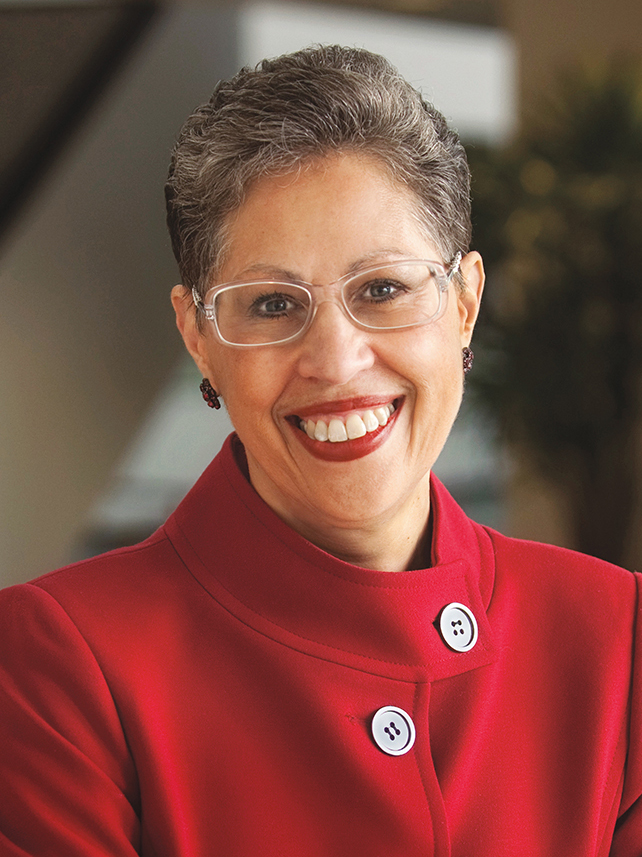
Susan Windham-Bannister, PhD’77
President, The National Governing Board of the Association for Women in Science (AWIS)
To say Susan Windham-Bannister, PhD’77, has been a trailblazer in the field of life sciences innovation would be more than a bit of an understatement. In her nearly four-decade career, she has played a central role in making Massachusetts a global leader in the life sciences; helped companies like Pfizer, Merck and Novartis bring dozens of lifesaving products and therapies to health care providers and patients around the world; helmed several companies; and been named one of the “10 Most Influential Women in Biotech.”
At Heller, Windham-Bannister found the support and challenge she needed to thrive. She recalls fondly how Norman Kurtz, now professor emeritus, made statistics come alive for her. “He really just made it fun and interesting,” she says. “He went a long way in bringing out for me more of a love for math and science. … I just had a great experience at Heller. The faculty, the students — the community was fantastic.”
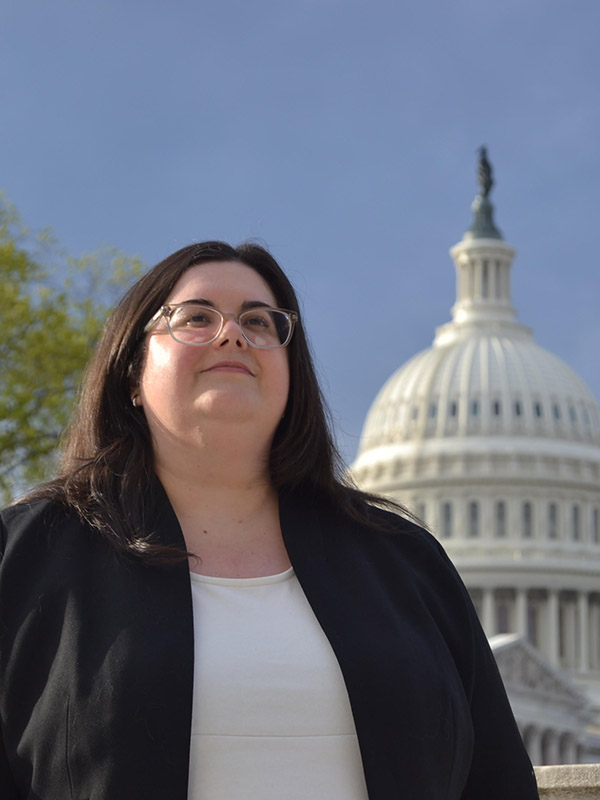
Jamie Morgan, PhD'23
Policy Fellow, Office of Democratic Whip Katherine Clark
“The most exciting thing about Heller is that you get to build your own adventure. A lot of programs require students to come in and find a mentor who is working on a project that interests you and that you can assist with, replicate, or build off of. At Heller, we’re able to choose our policy area and methodology, something that I don’t think many programs allow. ... At the end of the day, it’s your dissertation and you’re the subject matter expert.”
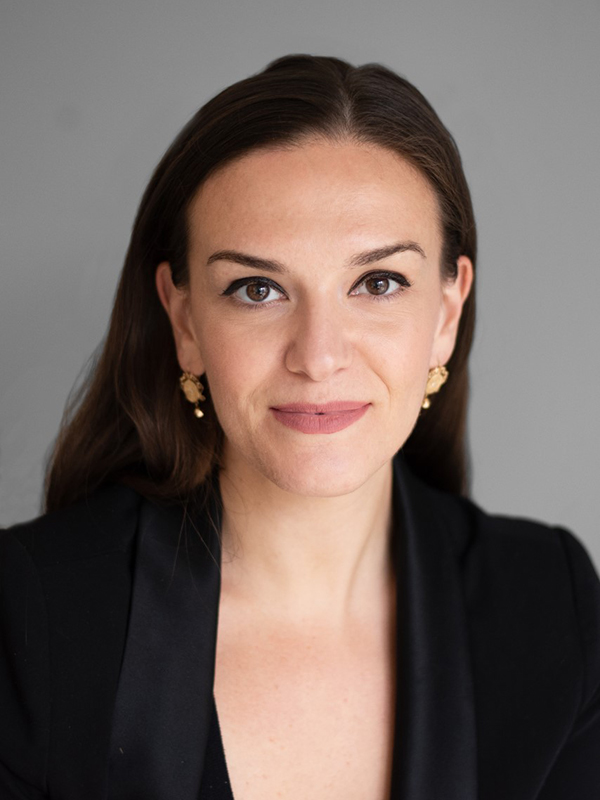
Drew Zachary, PhD'23
Deputy Chief Innovation Officer, U.S. Census Bureau
“On my first day of orientation at Heller, Career Services asked us what we planned to do after getting our PhD. Most people wanted to either become research faculty or go into nonprofit work—I was the only one who wanted to go into federal government. Career Services kind of scooped me up and said, ‘we’re going to help you apply to Presidential Management Fellows’ and that’s exactly what happened.”
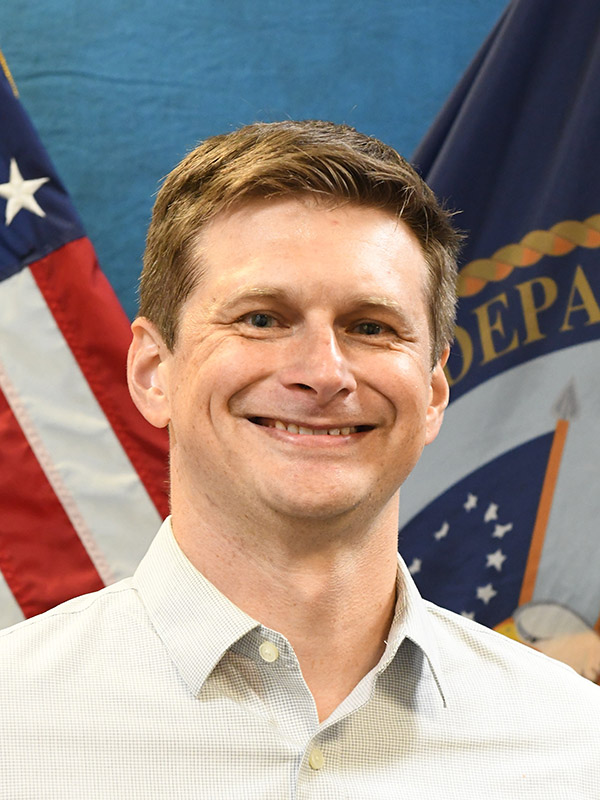
Mark Zocchi, PhD'23
Health Science Specialist, VA New England Healthcare System, Bedford, Mass.
“I felt like [Heller was] invested in me as an individual and had a great faculty and the infrastructure in place that would allow me to continue doing the research I was already doing, but really hone my skills to become an independent investigator.”
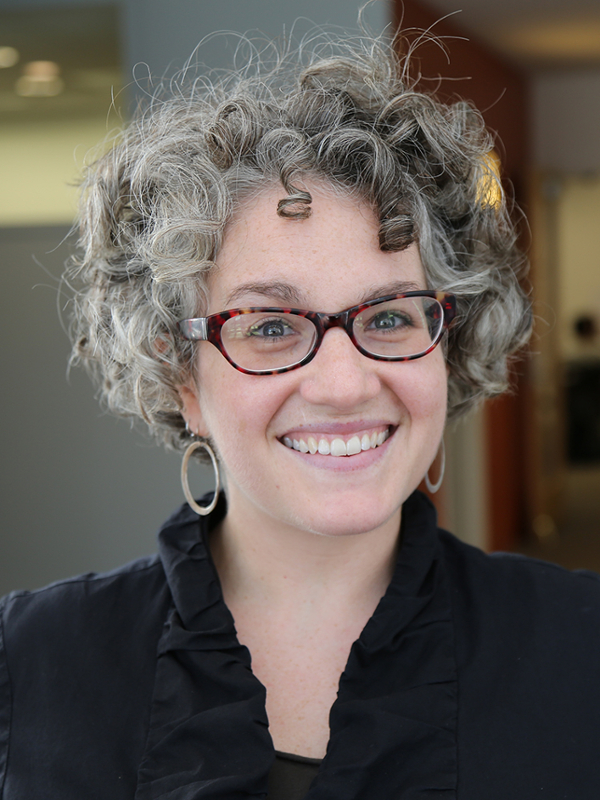
Sasha Albert, PhD’20
Senior Researcher with the Massachusetts Health Policy Commission
“I knew as soon as I had finished [my master’s] that what I really wanted was to do research that could be used to help make the world a better place,” she says, noting that she was interested in the interdisciplinarity of the program and its emphasis on research with real-world applications for policymakers and practitioners. “I also knew, after working for a few years, that I had gone about as far as my previous expertise and training could take me; if I was going to commit to a research career, I needed more training, and Heller was the right place to get it.”
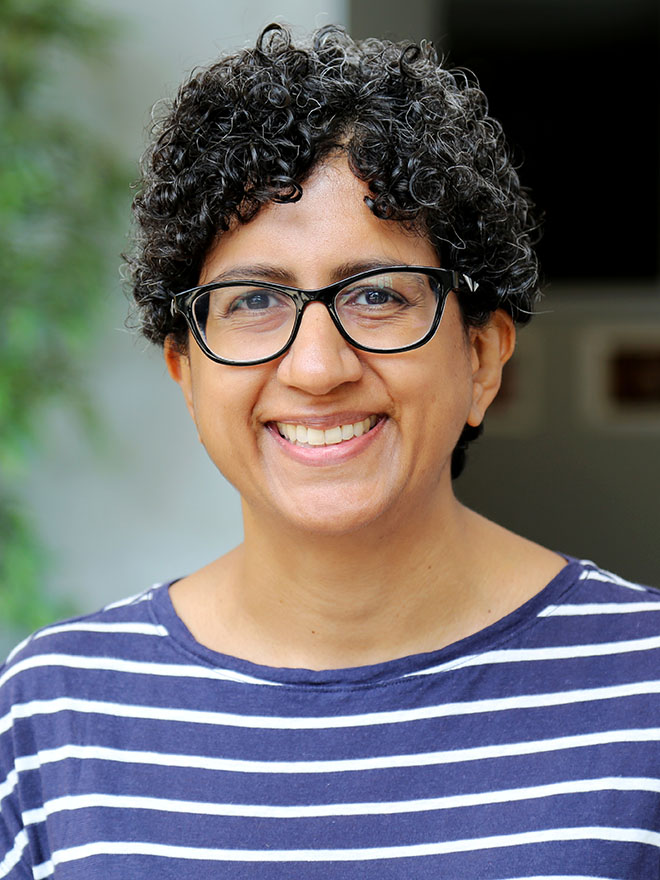
Sara Chaganti, PhD’18
Deputy Director, Regional & Community Outreach, Federal Reserve Bank of Boston
Chaganti conducts both qualitative and quantitative research on issues ranging from racial inequality to COVID-19. Her findings are used to inform public policy at the state and regional level, and have been cited in the media.
“Heller was an environment where I was able to develop as a researcher, to do the kind of work that I wanted to do. I was lucky to find a place where people were supporting each other and really aligned with the mission. The first time I visited, I heard the message about social justice everywhere in the building. It signaled to me that this was a place I would want to be.”
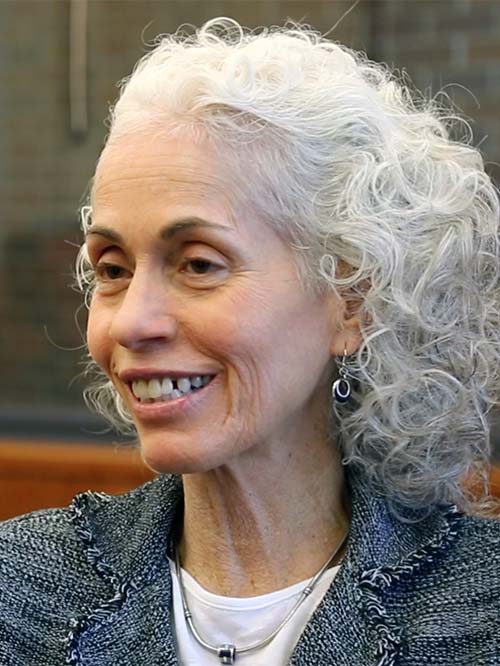
Barbara Ferrer, PhD’94
Director of the Los Angeles County Department of Public Health
“It’s so hard fighting a pandemic with a new virus because the evidence about what we need to do to protect ourselves has changed since we began. When we started, the guidance was that people didn’t need to wear masks. We were convinced that there was little asymptomatic transmission. None of that is true anymore. That’s our reality: being flexible, being able to move quickly as we learn more about the virus.”
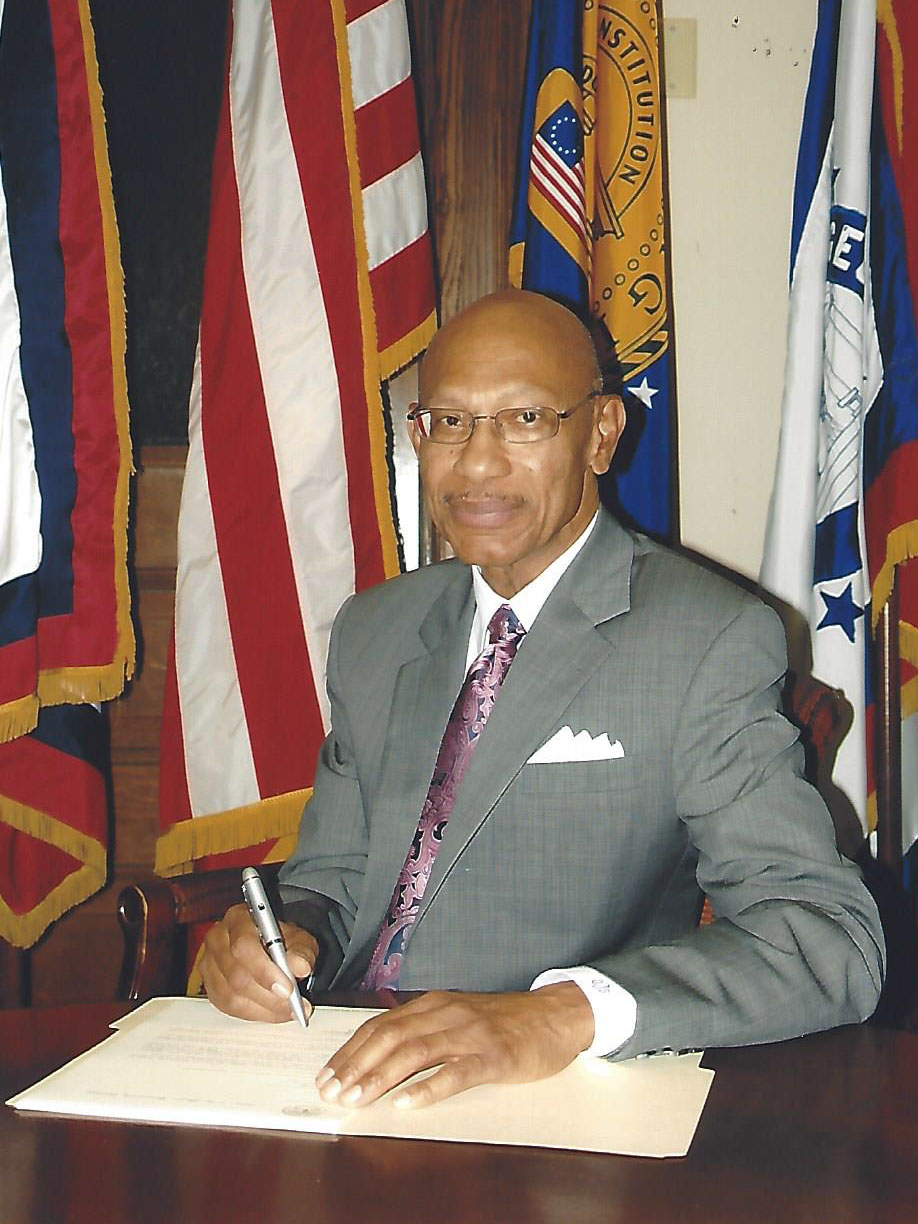
Otis Johnson, PhD’80
Former Mayor, City of Savannah, GA
“I have been a warrior in the civil rights movement and in the so-called war on poverty. I've been involved with issues of poverty and injustice my entire career. What Brandeis gave me was a foundation to look at implications and to approach social change from the system level. I was always a policy person. I wasn't ever a direct service person because I believed that you had to make changes at the policy level. You can provide services until the cows come home, but it won’t change the structure of things. It is the system that perpetuates the inequality and unless you can challenge that, you can't get lasting change.”
